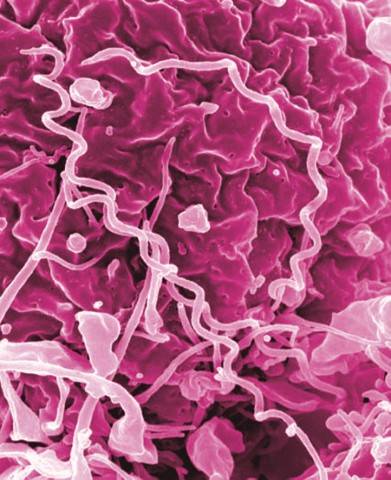While Alaskans and public health officials concentrated on COVID-19 cases in 2020, syphilis infections increased across the state.
According to a bulletin issued by the Department of Health and Social Services this week, “Alaska’s syphilis outbreak continues to grow, and congenital syphilis cases are at a record high.”
“I’m not surprised by the numbers,” said Susan A. Jones, an Anchorage-based public health nurse consultant and Department of Health and Social Services HIV/STD Program Manager, who was involved with the report.
“I’ve been watching the numbers climb. In some ways, I’m surprised there aren’t more cases,” she told the Empire in a phone interview Tuesday afternoon.
According to the report, in 2020, officials recorded a 49% increase in reported syphilis cases over 2019. In total, 361 cases were reported last year, including eight cases of congenital syphilis. Congenital syphilis occurs when an infected mother passes the infection on to her newborn during birth.
Syphilis infections are surging in Alaska
“What is really, really concerning is the number of congenital cases. It makes my stomach flip flop to know that eight babies had congenital syphilis,” Jones said, noting that untreated syphilis can cause fetal death and that about 40% of untreated babies with the infection die.
According to the report, Alaska’s syphilis outbreak was first declared in early 2018, and case counts have increased annually ever since.
Jones said that Alaska’s outbreak mirrors many of the outbreaks happening across the United States. She’s also worried about future numbers.
“The pandemic drained much of our public health resources. I wouldn’t be surprised if our numbers surpassed this in 2021,” she said.
Alaska’s cruise season ‘good to go’
Overall, Jones said that the numbers tell a story of people who aren’t seeking medical services — a situation exacerbated by pandemic-related concerns. She said that as the pandemic wanes, more people will seek services and get diagnosed.
According to the report, all of the infants identified with congenital syphilis were delivered to mothers who reported inconsistent or no prenatal care and were treated for syphilis less than 30 days before their infant’s delivery.
“It’s a scary, scary infection,” she said. “If you have it for a while, the external symptoms will go away, but it can still cause permanent damage.”
According to the Centers for Disease Control and Prevention, “without treatment, syphilis can spread to the brain and nervous system (neurosyphilis) or to the eye (ocular syphilis).”
Jones said that syphilis is treatable with antibiotics and that the stage of the infection drives the treatment approach.
Of Alaska’s reported infections last year, 85% were identified in the primary, secondary or early latent stages, and 47% of cases were identified as the late latent stage or of unknown duration.
• Contact reporter Dana Zigmund at dana.zigmund@juneauempire.com or 907-381-4891.

